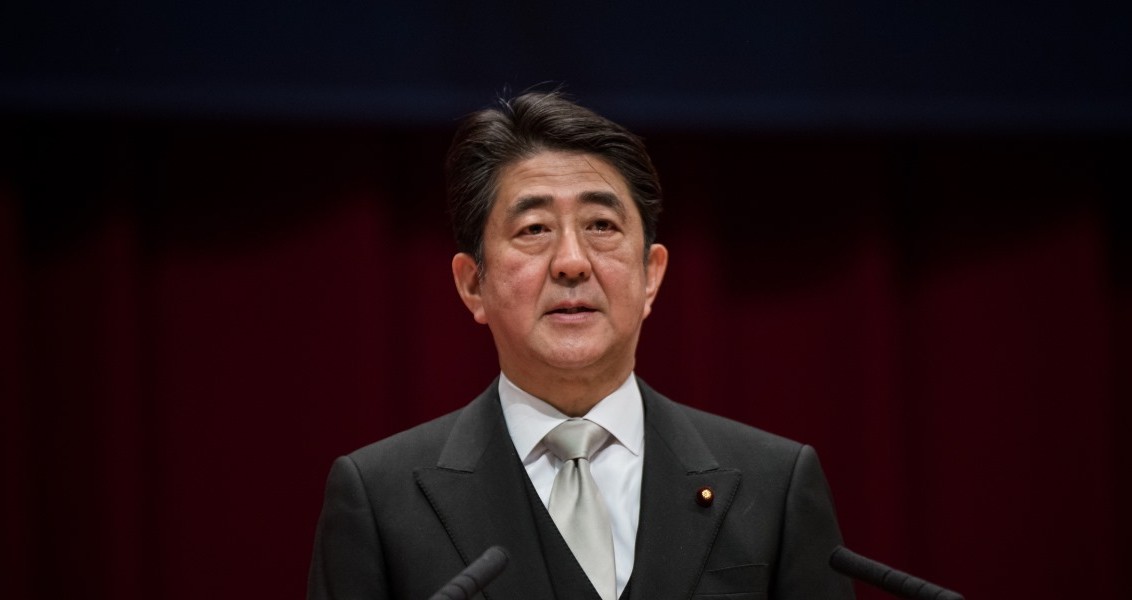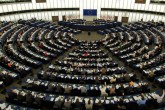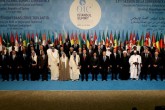Since the re-election of Prime Minister Shinzō Abe in Japan, we have started to see an increasing activity in Japan’s foreign and economic policies. Prime Minister Abe launched an ambitious economic policy to rescue the economy of his country from long stagnation, but also started a more pro-active foreign policy in different parts of the world. In a very short period of time the prime minister of Japan became the most traveled Asian leader in the world. Of course Abe had varied reasons for his travels, including trying to increase economic relations with other countries, launch security cooperation within the region and to increase the visibility of Japan in international relations. Three years ago, Abe appeared in different forums in the world and marked his new proactivity and engagement to the world with the statement “Japan is back.”
Although Prime Minister Abe made this comeback and won elections in his country, Japan has so far continued its low profile in different conflict areas where it might be much more active. Although we know that the constitution of Japan does not allow Japanese government to be aggressive in some areas of international conflict, nevertheless there are different areas and dimensions of these conflicts wherein Japan can contribute by engaging in constructive policy actions. One of these areas is the conflict in Syria. Like in other conflict areas, the Japanese government faced significant constraints and limitations about military and security dimension of the issues until the beheading of two Japanese hostages by DAESH. Immediately after this, Japan understood that it cannot be totally immune from the conflicts around the world. Being far away from the conflict areas or trying to seal the borders does not keep countries and their people safe from emerging global threats. After the DAESH beheading, the Japanese government demonstrated some proclivity to be more active in the security dimension of the conflict, but to more meaningfully be part of the solution in the Syrian conflict necessitates a more comprehensive strategy.
As a country with immense soft power, Japan could definitely take part in humanitarian dimension of this conflict. So far, in regards to the refugee crises, the Japanese government has not shown any sign of demonstrating the soft dimension of its power to the world. First of all, in the U.N. General Assembly, Abe stated that his country will contribute to the handling of the refugee crises by providing more than 1 billion dollars of financial assistance. However they remained very firm in not accepting refugees into Japan. The harsh immigration policy of the Japanese government, which contributes to their demographic crisis, was not softened by the despair of Syrian refugees. So far compared to its economic and demographic size and capacity, the Japanese government has accepted a minimal number of refugees from Syria. According to the latest reports, the number is still in hundreds and for a major economic power that aims to leave footprint in different areas of international relations, it is insufficient.
Secondly, Japanese foreign policy, due to its soft power in the region and its increasing presence in the Middle East, can play a role in the management of crises. Diplomatic assertiveness does not exhibit itself only through frequent flier miles. The economic capacity of Japan and their economic relations with the countries of the region has already made it a significant actor. This economic capacity of the country may give a lot of leverage for Tokyo to play a role in the mediation of conflicts and facilitation of talks between different parties. At least this economic volume can contribute to multilateral initiatives to create peace and stability. The Japanese government has to start thinking about how to formulate a policy of greater involvement in playing a constructive role. This role of course can even entail involve diplomatic efforts in Syria case and preparing for post-civil war reconstruction efforts. The fact that Japan did not become a part of the Iranian nuclear deal beside Germany was surprising for many, if it continues this low level it may even be hard to play a meaningful role in the future of the region.
So far the pacifist foreign policy and being a soft power was a choice for the Japanese government. Inaction and passivity were considered as the least risky choice. However considering the emergence of global threats and risks, this may not be an option. And for a Japanese government that wants to be more visible in international diplomacy, this may be a conflicting goal. Although in recent years Tokyo is doing its best to deny the claims of being a “free rider” in global politics, this can be more pronounced from different segments. During his recent visit to the U.S., Abe was eager to make the case that his country was ready to take more responsibility in security affairs. However, being a smart power necessitates a more active role in diplomatic and humanitarian grounds as well. In fact, if Japan is back and if it wants to convince the international community about its return, it has to do more in different crises. Syria can be a major opportunity for Japan to contribute to peace and stability in the region, and alleviate humanitarian tragedy. And yes, Japan can…
[Daily Sabah, April 18, 2016]
In this article
- Foreign Policy
- Opinion
- 2016
- Asia and Africa
- Civil War
- DAESH
- Daily Sabah
- Elections
- Europe
- Germany
- Global Actors | Local Actors
- International Relations
- Islamic Republic of Iran
- Middle East
- Migration
- Prime Minister
- Syria
- Syrian Civil War
- Syrian Conflict
- Syrian Crisis
- Syrian Refugees
- U.N.
- United Nations (UN)
- United Nations General Assembly (UNGA)
- United States (US)



